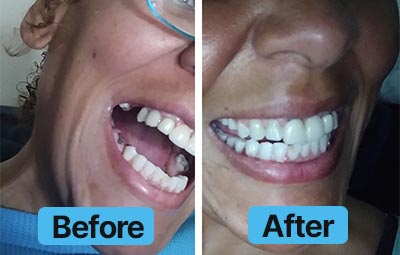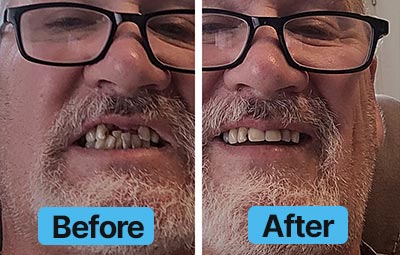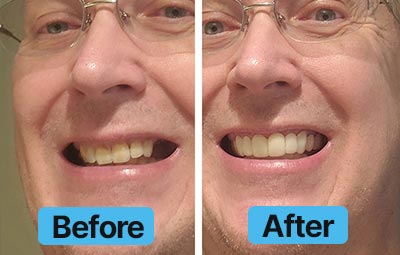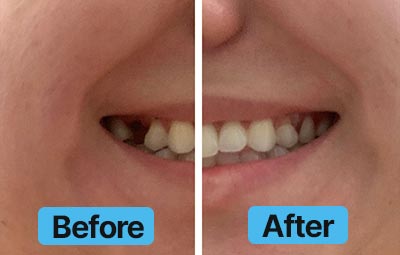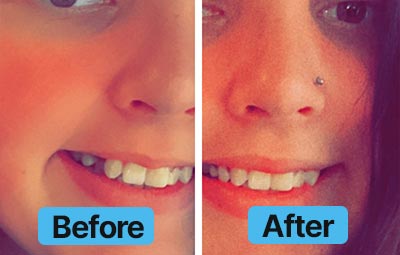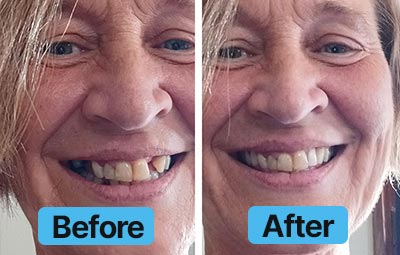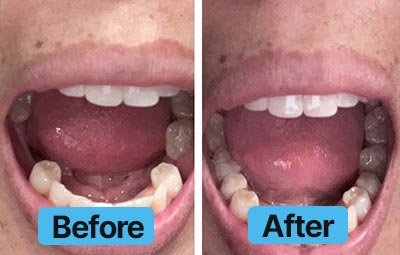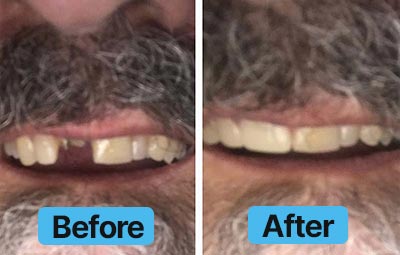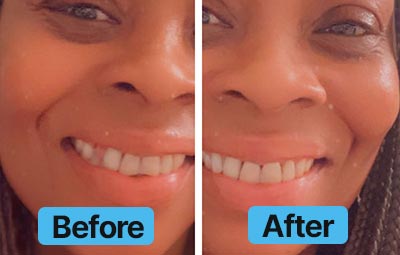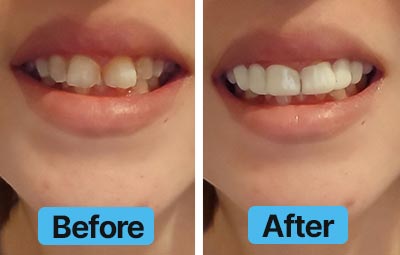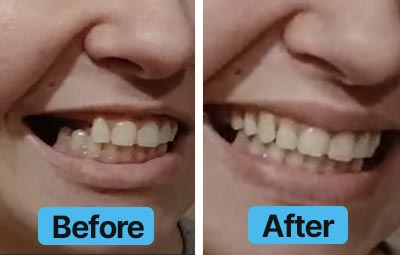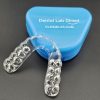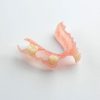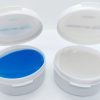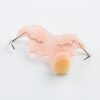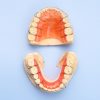There are plenty of myths and misconceptions about dentures that simply are not true. Tooth loss is, in fact, a much more common issue than you might think. According to the American College of Prosthodontics, “more than 36 million Americans do not have any teeth, and 120 million people in the U.S. are missing at least one tooth.” For anyone struggling with tooth loss, there’s no doubt that dentures are a common and effective tooth replacement method. Nearly “90 percent of those who suffer from edentulism have dentures.” Dentures are a fantastic solution for most patients regardless of social, economic, or age-related factors.
Since denture use is so widespread, myths and misconceptions are bound to crop up. We’re here to help myth-bust nine of the most common misconceptions about dentures.
9 Myths and Misconceptions About Dentures
#1 Dentures are Only for Elderly People
This assumption is totally false. Although elderly folks do comprise a large portion of denture users, they are by no means the only demographic who use dentures on a daily basis. Dentures are a fantastic solution for anyone looking to improve their smile. No matter how old you are, taking care of your teeth prevents illness and other complications down the line.
#2 Dentures are Always Made as Full Sets
Absolutely false! In fact, a large percentage of prosthodontic patients have partial dentures, designed to fill in gaps from one or more missing teeth and provide support to neighboring teeth.
Partial dentures fill the gaps in your smile by attaching to existing teeth with metal or resin hooks. Partial dentures are often made from flexible resin, which makes them comfortable for long-term wear and virtually invisible to the untrained eye. Since they are easy to remove and clean, partial dentures are a fantastic interim solution for individuals considering dental implants.
#3 Dentures Always Look Fake
The assumption that dentures look fake is based on antiquated images of false teeth (think George Washington’s wooden teeth or dentures in cartoons). In fact, denture manufacturing standards have improved so drastically that a well-made set of dentures should be indistinguishable from natural teeth.
Nowadays, instead of using a one-size-fits-all approach, dentists carefully match dentures to blend in with natural teeth and gums. Patients can choose from a wide variety of shades to find the best match for their smile. To fit the device seamlessly to your mouth and jaw, denture manufacturers use an impression of your existing teeth to gauge the dimensions of your new appliance.
If you experience any discomfort or frequent dislodgment of your dentures while eating or talking, visit your dentist to have your appliance refitted. Sometimes appliances become off-kilter over time and need to be readjusted to fit correctly.
#4 Dentures Stain Easily
It’s common for patients to worry that their dentures will stain more easily than natural teeth. But the opposite is true! Dentures are typically more stain-resistant than natural teeth since they are crafted from non-porous materials and glazed with a sealant prior to use. If properly cared for, dentures last for years without any staining or damage. Be proactive about stain prevention and avoid certain foods like black coffee and red wine, and clean your dentures regularly.
#5 Dentures Move Around in Your Mouth
Many people who wear dentures are worried their appliance will become dislodged or spontaneously pop out in the middle of a conversation or meal. While there is always some risk of dentures loosening over a long period of time while talking or eating, well-fitting dentures should be snug and secure.
Partial dentures are extra stable since they are secured in place by hooks that attach to existing teeth. Full dentures form a natural seal around the gums that holds them in place, but they can also be secured with denture glue for extra stability. To achieve the best fit, it’s important to keep full dentures supple by soaking them in denture solution overnight.
#6 Dentures Inhibit Chewing and Eating Capabilities
Well-made dentures should allow you to eat normally and are designed to withstand the normal wear and tear of chewing. If you’re still adapting to a new set of dentures, try eating softer food for the first few weeks as you adjust. Although well-fitting dentures should stay in place no matter what you eat, it’s best to avoid certain foods that are difficult to chew.
If possible, limit or avoid foods that are:
- Sticky (gum, taffy, gummy candy, caramel)
- Hard (hard candies, raw apples, crusty bread, popcorn)
- Staining (red wine, coffee, cigarettes)
#7 Dentures Last Forever
Even the most well-cared-for set of dentures will eventually deteriorate over time. The good news is that dentures will last for years if properly cared for.
- Clean your dentures daily with denture-cleaning toothpaste and a denture-specific toothbrush. Regular toothbrushes and toothpaste can be too abrasive and might scratch denture material.
- Soak your dentures overnight in a denture-cleaning solution. This will help keep them pliable and removes excess bacteria and stains.
- When not in use, keep dentures in a clean, secure, case that’s well away from children and pets.
#8 You Should Repair Your Dentures at Home
If your dentures crack or break it’s tempting to reach for the superglue or home denture repair kit. But repairing your dentures at home can have numerous unforeseen consequences. Since dentures are carefully crafted to fit your mouth, appliances that are improperly repaired may be uncomfortable, or ill-fitting. This may lead to complications like soreness in the gums, teeth, and jaw. If left untreated, abrasions from ill-fitting appliances may become infected or lead to tooth decay. Additionally, poorly repaired dentures may be at risk of becoming more damaged over time and exacerbating existing problems.
If your dentures become damaged or broken, seek help from a professional manufacturer. Avoid using household adhesives like superglues, as these contain toxic chemicals that should never go in your mouth even when dry.
#9 Needing Dentures is a Failure
Sometimes, patients who need dentures see their tooth loss as a failure or shortcoming. Many folks see tooth loss as a result of inadequate dental hygiene, poor preventative care, and lack of access to dental health resources. The truth is that tooth loss can happen to anyone. Tooth loss might stem from factors such as illness, genetics, or injury. Needing dentures is not a failure, and should be viewed as an opportunity to regain your confidence and comfort.
Eradicating Myths About Dentures with Dental Lab Direct
At Dental Lab Direct we specialize in custom-made dentures delivered to your door. We offer a wide variety of dental appliances including night guards, dentures, and retainers all available through our easy-to-use online ordering service. Crafted exclusively from FDA-approved materials, our devices are made with your safety in mind.
Interested in ordering your new appliance? Our three-step ordering process is convenient and hassle-free.
- Step One: Place an order on our website for a Dental Lab Direct impression kit, and wait for your kit to arrive in the mail.
- Step Two: Upon arrival, complete the impression kit following the user-friendly instructions included in the box. This should take about 15 minutes!
- Step Three: Mail your completed impression kit back to us using the prepaid postage label. In 2-3 weeks your custom-made appliance will be delivered directly to you!
The right dental appliance can improve your comfort, confidence, and lifestyle. Contact Dental Lab Direct today to get started!
 60 DAY warranty on all custom-made products | 1,000+ 5 Star ★★★★★ Reviews
60 DAY warranty on all custom-made products | 1,000+ 5 Star ★★★★★ Reviews

